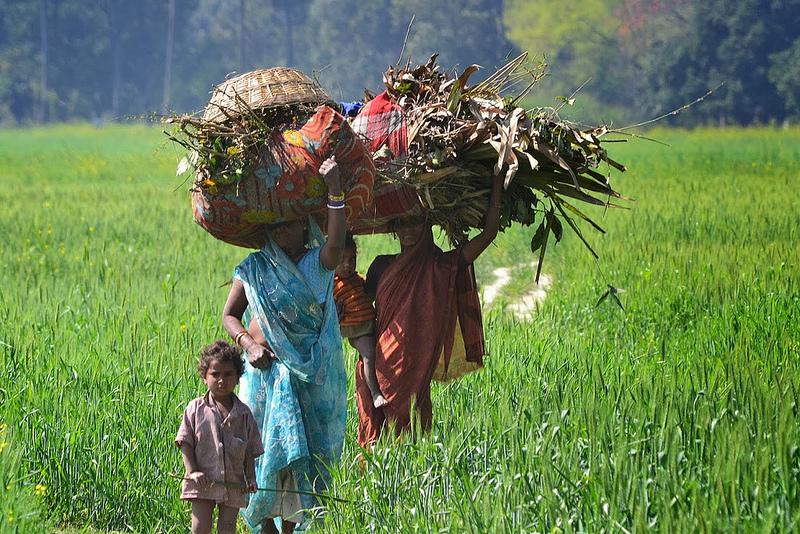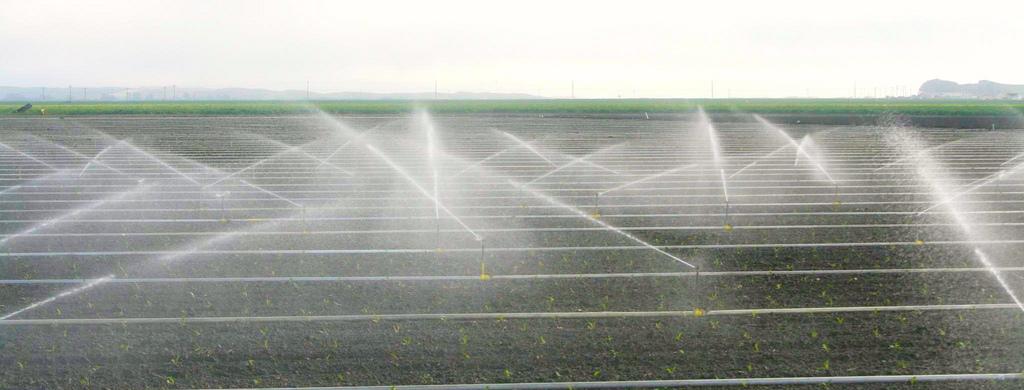A guide to our future planet: how will climate change impact food security?

Climate change is transforming the world, with extreme and unpredictable weather patterns altering the natural landscape.
The Global Landscapes Forum, due to take place in Warsaw 16-17 November, will look specifically at this issue, addressing ways the world can use forests and land in a sustainable way whilst also providing the necessary food to feed the world.
Raising essential questions about the way we all use natural resources, and in particular how we can achieve food security in an increasingly sustainable way, this years program features discussions on the future of sustainable landscapes and landscapes for food security and nutrition.

Key question:
How can we ensure enough food for a growing population while also protecting our forests? Photo: V. Reddy
Aligning the issues of protecting landscapes and food security is important, as achieving food security will impact the use of land and forests whilst landscapes alter due to climate change, which will impact food security.
Ahead of the Global Landscapes Forum, a new Guide to UNFCCC Negotiations on Agriculture from the global coalition Farming First, the CGIAR research program on Climate Change, Agriculture and Food Security (CCAFS) and the Technical Centre for Agricultural and Rural Cooperation (CTA) aims to demonstrate why the relationship between agriculture and climate change needs to be addressed on a global scale to protect natural resources and achieve future food security.
Adapting to protect the environment
We all rely on forests and land to provide food, yet with a growing global population we are producing food faster than the natural cycle can replace resources. Climate change is impacting the environment, changing the structure of forests, the quality of soil and making weather patterns unpredictable.
With the recent Intergovernmental Panel on Climate Change (IPCC) report stating that leading climate scientists are 'extremely confident' that climate change is man-made we all need to adapt to protect the environment.
However this is extremely difficult for the agriculture sector, which needs natural resources, and for example uses 70% of global freshwater resources, is under pressure to produce enough food to feed a growing population and also suffers from the impacts of climate change.

Agriculture is using 70% of freshwater resources putting water availability under great pressure. Photo: R. Masoner
Climate Change and Food Security
As farmers strive to feed a growing global population, they are witnessing unprecedented changes and experiencing new challenges every year. In particular, climate change is making the goal of food security increasingly difficult, yields in parts of Africa and South Asia are predicted to decrease by as much as 18% by 2050 whilst the world population will continue to grow.
Traditional tools and inputs are becoming redundant due to shifting weather patterns and feeding the world will require more natural resources than ever before. Therefore, the sector will continue to both contribute towards and be impacted by climate change if this dangerous cycle is not addressed.
Highlighting the complex relationship:
The Guide offers infographics, case studies, videos and key quotes that reinforce the need to develop holistic solutions for food security, looking at ways in which farmers can adapt to climate change and even mitigate the impact of the agriculture sector on the environment.
Farmers around the world need to discover and explore methods so they can begin to adopt and experiment with new tools and inputs, offering them the chance to discover efficient ways to adapt to climate change. Lani Eugenia, general Secretary of Puantani, Indonesian Women Farmers' and Rural Women's Organization, expresses the urgency needed to address climate change in farming:
“There should be an immediate effort to address climate change, we can’t just wait to see what happens. Climate change has affected our yields, drained our food stocks, and is impacting the nutrition of children and people in rural areas. When our agricultural environment is being destroyed, our life faces a complete burden.”
The annual UN climate change discussions are just around the corner and at COP19 in November government leaders and policy makers need to listen to the voices of farmers from around the world.
The time to act is now if we are to address the droughts, floods and heatwaves that are impacting the ability of the world to feed itself.
Farmers urgently need knowledge and resources that can help them improve yields and adopt sustainable farming methods and it is hoped this guide will illustrate the need to address climate change and agriculture together for future food security.
Anette Friis Engelund also manages the climate policy file for the Danish Agriculture and Food Council, formulating climate change and sustainable development policies at the national, European and global level.
